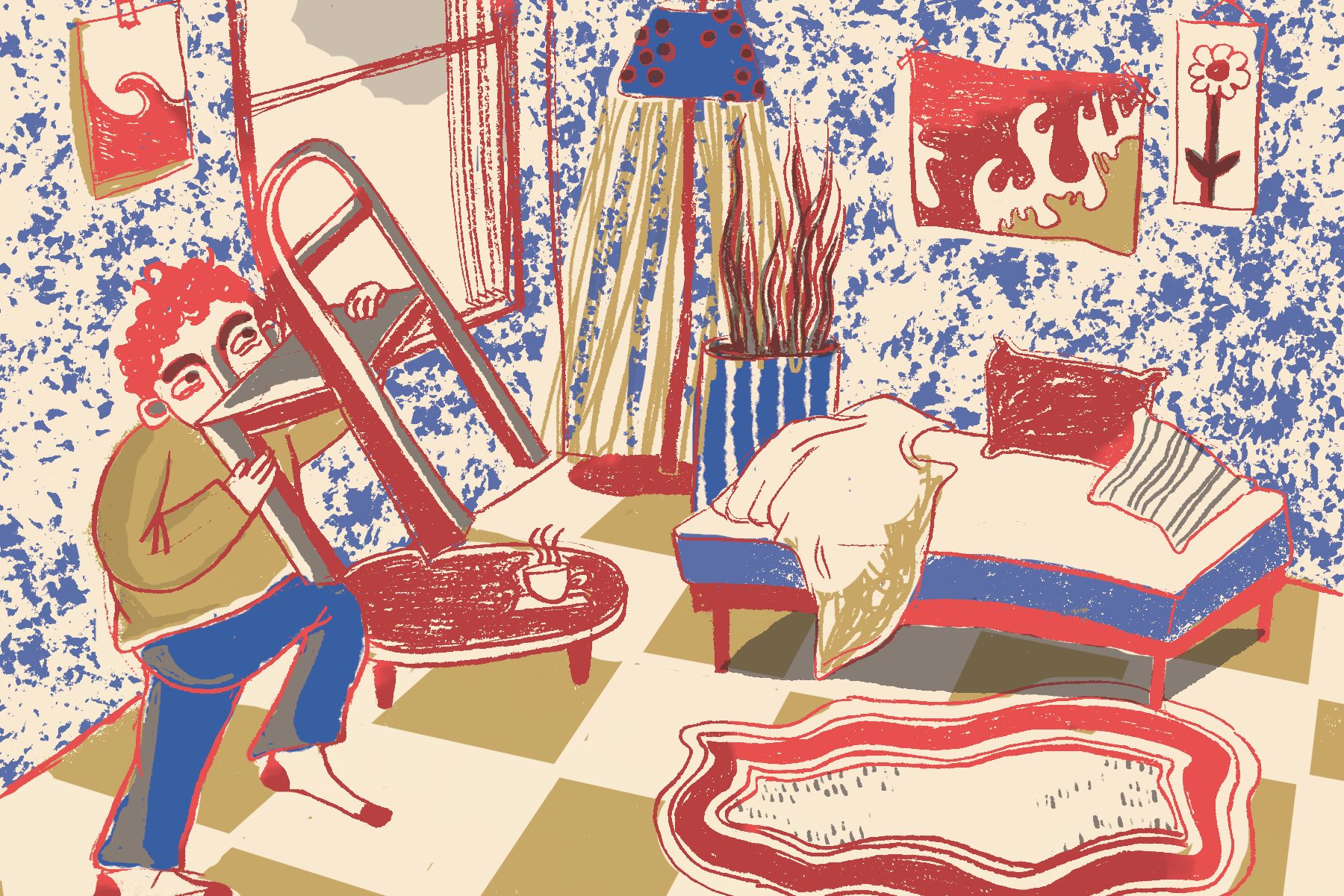As millions of Americans are now spending all of or the majority of their time at home — whether it be working, studying or anything else — the spaces they inhabit are more important than ever. Bedrooms are doubling as working and relaxing spaces, couches become office furniture and dining tables serve as desks. Along with the many roles that home spaces have now taken on, they might also be feeling old and boring now as we enter the fifth month of national lockdown.
During a time where there’s little to no change in daily life or surrounding scenery, it’s important to seek out some safe change for the sake of your mental health and overall happiness. Whether it’s because you want to make a space feel new again, alter its main purpose or give yourself something to do, changing up your space has many benefits.
Maybe you want to make a big change, like painting your walls, rearranging furniture or even adding an entirely new element to the room. While these changes will make your space feel newer in a more dramatic way, small adjustments and additions, such as new decorations or plants, can still have a refreshing effect on you and brighten up the walls you’ve been staring at since March.
Change your outlook on the space
A space can feel stale when you spend all day around the same things. I find that what has the biggest impact on a space for me is readjusting furniture because it changes the way I interact with and navigate my surroundings. Painting, rearranging, decorating or any other change to your space can make it feel like a new place, even if it’s the room you’ve been stuck in for months on end and you don’t know when you’ll be out of it again.
Changing up your space’s layout can have positive impacts on your overall health. Getting more natural light can increase serotonin production in the brain, boosting your mood and helping you feel calmer. Bringing in some green to your space also has many benefits: NASA reported that in 24 hours, some houseplants can remove up to 87% of toxins in the air and other studies have shown that houseplants can improve concentration and productivity along with having positive impacts on mood and stress levels. Caring for your plants can also help you distinguish what day it is and give you something to take care of and nurture. Still, even if you’re not able to introduce anything new into the space, making it feel fresh by doing what you can with what you have can have just as much of an impact and it’ll seem like a totally new place.
Reflect new purpose
If you’re working or studying from home but don’t have a home office, it’s important to still have a space that’s designated for working. Doing work where you normally relax or sleep can impact your mindset when you’re supposed to be working and lead to decreased productivity. It’s good to broaden your library of home office ideas, so you can select and implement what suits you the best.
So, even if you’re working from a bedroom, make sure to have a space that’s specifically for working. That way, when you enter and exit it, there’s a clear shift between “home” and “work,” even if they’re only two feet apart. Making clear boundaries between areas of your space that have different purposes can be difficult if you’re doing it all from your bedroom, but you’ll be better off for it when classes start again and you’re having a hard time writing an eight-page paper from your bed.
If you’re changing up a room to be a new office, making your desk or main workspace a welcoming (but not distracting) area is important to keep your motivation and productivity high. And, if you normally do solo work but are now shifting to video conferences like millions of others are, make sure you won’t be backlit on your calls.
Whatever your space’s new purpose may be, consider what makes it ideal for you. What working conditions help you focus best? What helps you relax or sleep? What do you need to make this space one that encourages you to use it for its actual purpose? No matter what you do with it, make it yours.
Have something to do
It might seem a little obvious, but there are some days where there’s literally nothing I want to do or have the energy for. We seem to only be existing in our spaces, without interacting with them. So while redecorating, painting or hauling your desk from one wall to another can take up a huge chunk of your time, it also encourages you to be fully present in your home and engage with where you are.
Having something to do doesn’t seem like a big deal, but in terms of putting down technology and really engaging, mentally and physically, with your surroundings, it isn’t always common. Changing a space has immediate and visible results, which offers a lot more satisfaction than scrolling endlessly on Twitter ever will.
Living in a space that you’ve previously never been in for a substantial length of time can be difficult, especially if you were someone who wasn’t home a lot. For those who worked long days and were only home to eat and rest or students who’ve been gone for so long they feel more at home in a dorm room than their real bedroom, quarantine may be showing how little your space works for you.
Making any kind of change, big or small, can not only help make it feel more comfortable, but also reflect who you are now and what you need. Yes, we’re still sort of trapped inside, but transforming your space into one you truly want to live in is crucial, especially since we may be in our homes for months and months to come. So add more plants, move your bed across the room or slap some paint on the walls and make that house a home.

















